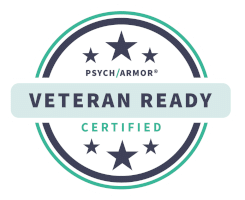Most people will experience some form of trauma during their lifetime. About 60% of men and 50% of women go through at least one traumatic event in their life.1 Though it’s not a rare occurrence, it’s important to note that there is a spectrum of trauma, and it affects each individual differently.
For example, two people may experience the same event, yet each processes it differently. Your trauma is your trauma, and it’s completely valid.
As trauma happens, troublesome symptoms are common during the days and weeks following the event. Feelings of shock and denial are strong. Unpredictable emotions, flashbacks, psychosomatic symptoms, and strained relationships are also expected. After a few weeks, though, these symptoms typically diminish, and people return to normal.
However, some people have trouble moving on after experiencing trauma. They may return to “normal life” but often experience underlying difficulties fueled by the residual effects of trauma. What are some unresolved trauma symptoms, and how can people find help and healing?
What is Trauma?
Trauma describes the emotional and psychological response to deeply distressing or disturbing events or experiences that overwhelm an individual’s ability to cope.
As defined in the DSM-5, trauma is a response to experiencing or witnessing an event that involves actual or threatened death, serious injury, or sexual violence. This can happen through direct experience, seeing it happen to others, learning it happened to a close loved one, or being repeatedly exposed to details of such events (like in certain jobs). However, current research highlights that trauma isn’t only defined by the event itself, but also by the lasting impact it has on a person’s sense of safety, trust, and emotional stability.
Common Reactions to Trauma
After experiencing trauma, most people feel anxious, angry, or sad. They may have trouble with memory, concentration, or sleep. Most people continuously think about the experience or shut it out of their minds entirely. These responses may be immediate or delayed and brief or prolonged. The reactions to trauma typically diminish after a few days or weeks. Some people may need therapy or counseling to work through their symptoms. There may be some lasting fear or worry, but people usually come back to themselves eventually.
Signs + Symptoms of Unresolved Trauma
Unresolved trauma can show up in many emotional, psychological, and physical ways. Research from peer-reviewed journals in psychiatry, psychology, and neuroscience highlights the following common signs and symptoms:
Emotional and Psychological Symptoms:
Intrusive memories or flashbacks of the traumatic event
Nightmares or sleep disturbances
Avoidance of people, places, or situations that trigger memories of the trauma
Emotional numbness or detachment from others
Intense feelings of shame, guilt, or worthlessness
Irritability, anger outbursts, or mood swings
Persistent anxiety, fear, or panic attacks
Difficulty concentrating or feeling mentally “foggy”
Hypervigilance (constantly feeling “on edge” or in danger)
Depression and hopelessness
Physical Symptoms:
Fatigue or chronic exhaustion
Headaches, stomachaches, or other unexplained body pain
Appetite changes
Increased heart rate or physical tension
Sleep problems (difficulty falling or staying asleep)
Behavioral Symptoms:
Social withdrawal or isolation
Self-destructive behaviors (e.g., substance use, disordered eating, self-harm)
Compulsive behaviors or risk-taking
Difficulty trusting others or forming healthy relationships
These symptoms are often linked to changes in the brain’s stress response system caused by trauma. When left unprocessed, trauma can disrupt emotional regulation, memory, and the ability to feel safe or connected. It’s important to remember that these signs are not weakness—they are survival responses. Professional support and trauma-informed care can help individuals heal and regain a sense of stability and safety.
Healing from the Effects of Trauma
While unresolved trauma symptoms are difficult to work through, healing is possible. Treatment programs like those at Pasadena Villa offer an avenue to overcoming your symptoms of trauma and rebuild your life. It often takes time to work through the effects of a traumatic event, but reaching out for help is the first step toward taking back control.
To learn more about the programs available at Pasadena Villa, please reach out to us today at 407-565-8942. You can also fill out our online contact form, and an admissions specialist from our team will reach out to you!
Sources:
- U.S. Department of Veterans Affairs. (2022). How Common Is PTSD In Adults?.
- National Institute of Mental Health. (2020). Coping With Traumatic Events.





